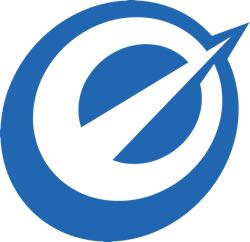Conversational developer interview questions
I’ve already recommended not doing interviews at all, but rather conversations.
But you’re still going to need to ask questions. You still need some way to ensure you backstop all of your research.
The other thing I wouldn’t recommend at this point are your traditional interview questions that are supposed to gain some insight into the candidate’s psyche. They’re not going to fit in with our un-interview vibe and aren’t useful anyway.
As far as what type of question I’m referring to, I mean the “If you were an animal, what kind of animal would you be?”
I worked with a digital hiring manager a while back that would ask every candidate, “If you could have one super-power, what would it be?”
He had meanings and talismans associated with all manner of answers.
- Omniscience: Definite red flag. Too much desire for power. Will be hard to work with.
- Invisibility: Similar red flag. Wants to shrink away. Downside: this is a popular developer answer.
This is all bullshit. Like we’ve already talked about, you only need to care about two things: Can they do the job and can you work with them? That’s it.
So, what sorts of questions should you ask?
Below are some examples, in rough conversational order:
-
Where are you working these days? Do you like it? What you’re looking for: An in. This question has less to do with how they’ll fit in, but much more to do with how you can get them in. You’re looking for contrast points with what you have to offer. What are their pain points and what can you sell to them. Alternatively, if they’re not complaining at all, you might have to do a lot more work later. That said: Even the happiest developer will complain about something if you give them a window. Use that later.
-
What do they have you working on? How are you building that? What you’re looking for: A bit of the above — job dissatisfaction, but also a segue into later questions. Also look for connections, thematically or otherwise, with the work you have in mind for them. They don’t have to be connected, but if they are, that can be a handy indicator that they can do the job you’re hiring for — because they’re already kinda doing it.
-
What’s your favorite language? Why? What you’re looking for: You don’t necessarily need your programming language to be the favorite. Look more for the energy behind this question. They should be excited to talk about languages and should have enough knowledge of their favorite and others to give good reasons for liking it. The actual content of the answer doesn’t matter nearly as much as those factors: are they excited when they talk about languages, and do they seem somewhat familiar with more than one?
-
Anything on the side? What you’re looking for: Ideally something. Side projects are another important indicator. The great developers are always exploring, fiddling and screwing around with experiments outside their day job. What that side project(s) consists of can also give you a glimpse at what they truly care about.
-
Any experience with X? What you’re looking for: X in this case is some specific requirement or nice-to-have you have in mind. If they say no, be prepared to explain what it is you’re talking about to see if they at least get it conceptually.
-
What do you do for fun? What you’re looking for: This one can go two ways. If the answer is “more programming,” that’s a good sign (see the Anything on the side question above). But it’s not a negative if that’s not the answer. After all, you want to hire interesting people who like to explore. You want to get a sense of that. As an aside: It’s been my experience that home brewing beer is a popular answer to this, at least among the best developers I’ve known or hired.
-
What’s the nastiest problem you’ve run across? What you’re looking for: Almost every developer has a horror story or two. You want to hear how they thought through the problem and how it turned out.
The important thing to keep in mind with any of these is that they aren’t interview questions, and again, this isn’t an interview. It’s a conversation, preferably over food or beverage. Talk about yourself, talk about your company, let these questions lead off into tangents and rabbit holes — just like a regular conversation, because that’s what it is.
Always keep in mind the three key questions you’re wanting answered for yourself:
“Can this person do the job?”
“Can I work them?”
“Would they like working here?”

